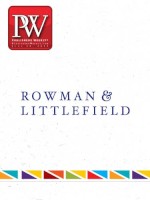In his new book, The Telling Room: A Tale of Love, Betrayal, Revenge and the World’s Greatest Piece of Cheese, Michael Paterniti’s (Driving Mr. Albert) zestful storytelling carries us along on a delightful journey through a Spanish village rich with the traditions of food and family, as he recounts a tale both joyous and sad of discovery, betrayal, revenge, and restoration.
What led you to write this book?
Although a piece of cheese stirred my initial interest, the whole journey into this book has been a real rite of passage. My experience taught me about the value of time and storytelling. The book was 10 years in the making, and one of the reasons it took so long is that I was waiting for something to happen; I was waiting for an ending to the story. Ambrosio, the cheesemaker at the center of the story, told me this story about how he had been making the cheese that had been in his family for generations, how he had lost the cheese, or ownership of it, and how he wanted to get revenge. I had created this inviolable space in this village where time didn’t exist, but when my family and I moved over to Guzman to live, time kicked in, and I realized Ambrosio and his family were also living in a world marked by beginnings, middles, and endings, so I was able to finish the book.
You and your family moved from Maine to and lived in this small village in the Spanish province of Burgos. How different was life there?
At first, we felt like we were on the moon; we had no cell phone coverage or Internet access. Very soon, though, we came to love the stripped down honesty there, and the very rich tradition of storytelling in Guzman did draw me in. You might encounter someone on the road, and he or she would stop to tell you a story; our social schedules were really busy, for we’d go to these telling rooms where we’d sit with others and eat, drink, tell stories, and listen. For me, the place became a projection of perfection, and my challenge became to bring some of this lifestyle back to my life in America.
What are some of the lessons that you learned from writing this book?
Well, one needs to be patient in telling a story that doesn’t seem to have an ending. Storytelling is about patience, about making sense of the moments of pathos and beauty that you find, and about carrying these moments back into your own life. I also learned the importance of trying to find time to connect with the people around you. All the impulses I practice every day are sublimated in this wonderful relationship to storytelling.
What messages would you like readers to take from your book?
I wish we could all have a telling room, a place where we go to tell our stories and listen to the stories of others; in our culture, the telling room might be around the dinner table or in the car on a long trip. I’m convinced that consistent sharing of our stories would bring us closer together.



 Volume 260
Issue 23
06/10/2013
Volume 260
Issue 23
06/10/2013





